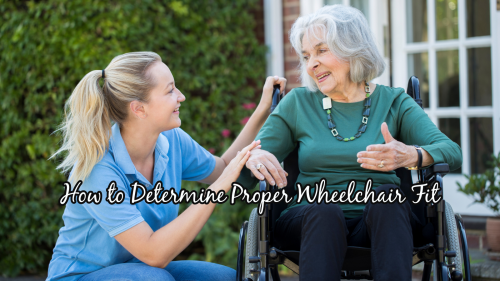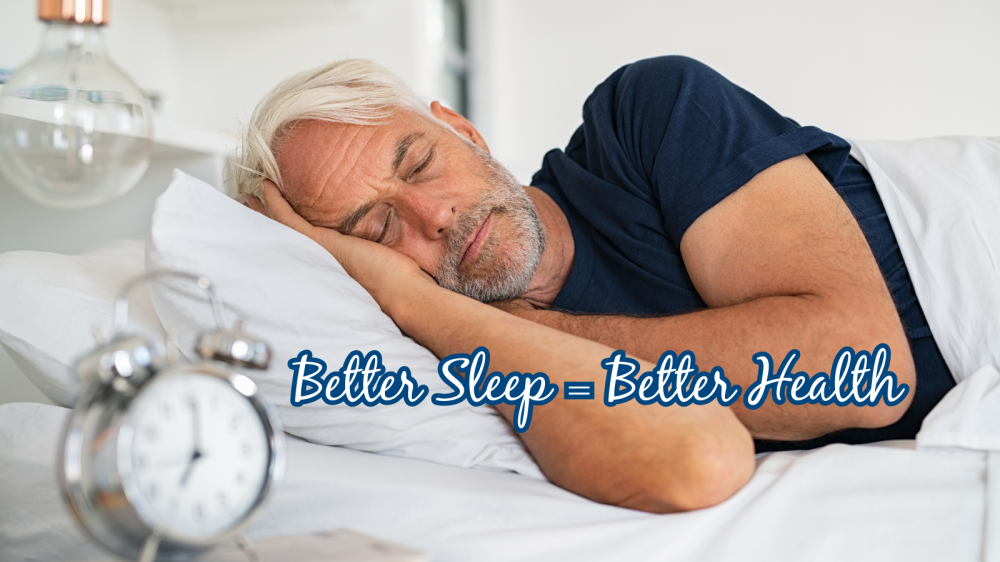Educational Articles
Why Better Sleep Leads to Better Health
Getting a good night's sleep is not a luxury - it's a necessity. Sleep plays a crucial role in physical healing, brain function, and emotional well-being. Yet, many adults, especially those over 65, struggle with sleep quality due to changes in sleep patterns, medications, or health conditions.
Why Sleep Matters
· Supports Immune Function: While you sleep, your body repairs and strengthens its defenses.
· Boosts Brain Health: Sleep helps with memory, attention, and decision-making.
· Regulates Mood: Poor sleep can increase irritability, anxiety, and even symptoms of depression.
· Reduces Fall Risk: Being well-rested improves balance, reaction time, and coordination.
Tips for Better Sleep
· Stick to a Routine: Go to bed and wake up at the same time every day, even on weekends.
· Create a Sleep-Friendly Environment: Keep your bedroom quiet, dark, and cool.
· Limit Naps: If needed, take short naps (20-30 minutes) early in the afternoon.
· Avoid Stimulants: Reduce caffeine and heavy meals in the evening.
· Stay Active: Gentle daily activity, like walking or stretching, can improve sleep quality.
· Unplug an hour before bed: Try turning off screens and doing something calming like reading, listening to music, or gentle breathing exercises.
Article contributed by Emily Erickson, Regional Assistant Director of Rehabilitation
Contact us about inpatient and outpatient therapy:
- info@dovehealthcare.com
- 715-723-9348, ext 1250
- https://www.dovehealthcare.com/rehabilitation.phtml
References: Sleep and Immune Function Besedovsky, L., Lange, T., & Born, J. (2012). Sleep and immune function. Pflugers Archiv - European Journal of Physiology, 463(1), 121-137. https://doi.org/10.1007/s00424-011-1044-0Sleep and Cognitive Function Lo, J. C., Ong, J. L., Leong, R. L., Gooley, J. J., & Chee, M. W. (2016). Cognitive performance, sleepiness, and mood in partially sleep-deprived adolescents: The need for sleep study. Sleep, 39(3), 687-698. https://doi.org/10.5665/sleep.5552 Sleep and Mood Disorders Baglioni, C., Battagliese, G., Feige, B., et al. (2011). Insomnia as a predictor of depression: A meta-analytic evaluation of longitudinal epidemiological studies. Journal of Affective Disorders, 135(1-3), 10-19. https://doi.org/10.1016/j.jad.2011.01.011 Sleep and Fall Risk in Older Adults Stone, K. L., Ensrud, K. E., & Ancoli-Israel, S. (2008). Sleep, insomnia and falls in elderly patients. Sleep Medicine, 9(Suppl 1), S18-S22. https://doi.org/10.1016/S1389-9457(08)70011-1 Sleep Hygiene Recommendations Hirshkowitz, M., Whiton, K., Albert, S. M., et al. (2015). National Sleep Foundation's sleep time duration recommendations: Methodology and results summary. Sleep Health, 1(1), 40-43. https://doi.org/10.1016/j.sleh.2014.12.010Sleep and Aging


